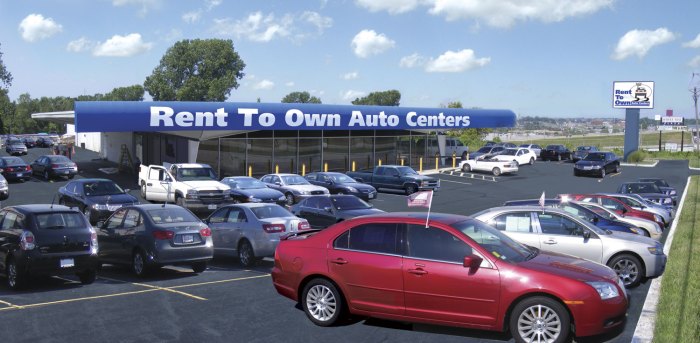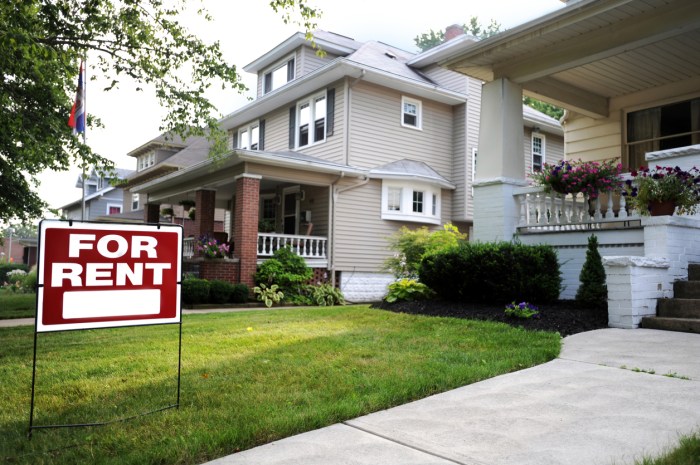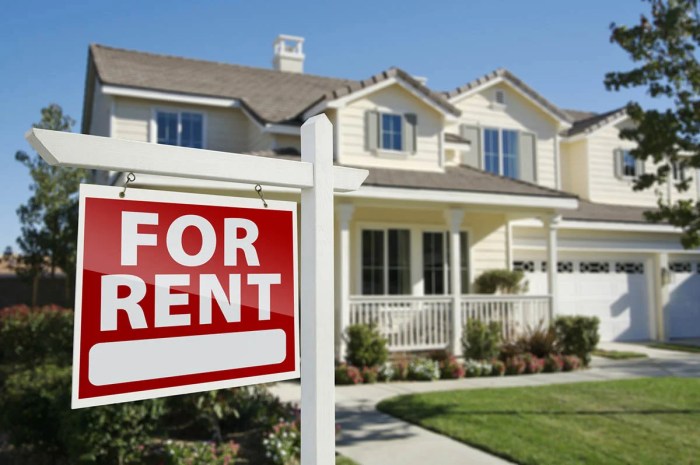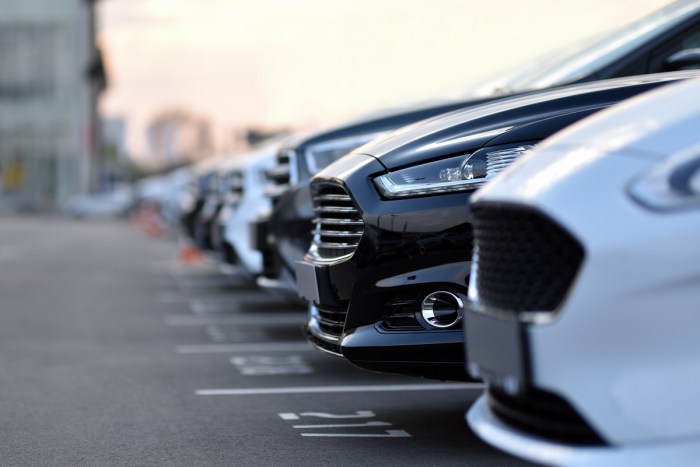Used car or rent house – In the realm of personal finance, the age-old question of whether to buy a used car or rent a house continues to spark debates and shape financial decisions. Each path presents a unique set of advantages and challenges, creating a complex tapestry of considerations that can leave aspiring homeowners and drivers alike at a crossroads.
From the allure of potential property value appreciation to the flexibility of renting, this discussion delves into the intricate details of both options, exploring their financial implications, lifestyle considerations, and long-term impact on our financial well-being and personal aspirations.
Financial Implications
When deciding between buying a used car and renting a house, it’s crucial to consider the financial implications. Each option comes with a unique set of costs that can significantly impact your budget.
Monthly Payments:When buying a used car, you’ll typically make monthly loan payments. The amount of your payment will depend on factors such as the loan amount, interest rate, and loan term. In contrast, when renting a house, your monthly payments will cover rent, which is typically fixed for the duration of your lease.
Insurance
Both used cars and rental houses require insurance. Car insurance protects you financially in case of accidents, while homeowners or renters insurance covers the property and its contents. The cost of insurance will vary depending on factors such as your driving history, the value of the car or house, and the level of coverage you choose.
Maintenance
Used cars require regular maintenance to keep them running smoothly. This can include oil changes, tire rotations, brake inspections, and other repairs. The cost of maintenance will vary depending on the age and condition of the car. Rental houses, on the other hand, typically require less maintenance, as the landlord is responsible for major repairs.
Property Taxes
If you buy a house, you’ll be responsible for paying property taxes. These taxes are typically assessed annually and can vary depending on the location and value of the property. Rental houses do not require you to pay property taxes.
Interest Rates
If you finance the purchase of a used car, the interest rate on your loan will impact your monthly payments. Higher interest rates mean higher monthly payments, while lower interest rates mean lower monthly payments. It’s important to compare interest rates from multiple lenders before making a decision.
Lifestyle Considerations
The choice between owning a used car and renting a house has significant implications for your lifestyle. Both options offer unique advantages and disadvantages, shaping your daily routines and personal preferences.
Flexibility and Mobility
Owning a used car provides unparalleled flexibility and mobility. You can travel whenever and wherever you desire, without the constraints of public transportation or ride-sharing services. This freedom allows you to pursue spontaneous adventures, explore new destinations, and easily run errands or appointments.
Renting a house, on the other hand, offers a more stable living situation. You have a designated address and a place to call home, providing a sense of belonging and stability. However, this stability comes with less flexibility in terms of mobility.
Deciding between purchasing a used car or renting a house can be a significant financial decision. To make an informed choice, it’s crucial to consider factors such as long-term costs and potential appreciation. While understanding the intricacies of real estate can be daunting, there are resources available to guide you.
For those interested in exploring the world of cryptocurrency, How to Calculate Profit in Crypto Trading: A Comprehensive Guide provides valuable insights into calculating returns and managing risks. Ultimately, whether you choose a used car or a rental property, it’s essential to conduct thorough research and make decisions that align with your financial goals.
You may need to plan your travels around your lease agreement or arrange for alternative accommodations if you need to be away for extended periods.
Space and Amenities
Used cars typically offer less space and fewer amenities than rented houses. While some models may provide ample legroom and storage capacity, they cannot match the spaciousness of a house with multiple rooms and outdoor areas. If you value having a dedicated workspace, a comfortable living room, or a private backyard, renting a house may be a more suitable option.
As you ponder whether to purchase a used car or rent a house, consider the world of cryptocurrency. Dive into the intricacies of How Trading Crypto Works: A Beginner’ , and discover how it can potentially augment your financial trajectory.
Then, revisit your decision, armed with a broader perspective and the potential to unlock new opportunities in the realm of used cars or rental properties.
However, renting a house also comes with additional responsibilities. You are responsible for maintaining the property, including yard work, repairs, and cleaning. This can be time-consuming and may limit your free time or require you to hire professional services.
Property Value Appreciation
Property value appreciation is a crucial factor to consider when weighing the financial implications of buying a used car versus renting a house. Both investments have the potential to appreciate over time, but the rates and factors influencing appreciation vary significantly.
Used Car Appreciation
Used car values typically depreciate over time due to factors such as wear and tear, technological advancements, and market demand. However, certain classic or rare models may appreciate in value over the long term due to their rarity and collector appeal.
Housing Market Appreciation
Housing values have historically shown a more stable and consistent appreciation trend. Factors influencing housing value appreciation include:
- Economic growth and job creation
- Population growth and migration patterns
- Government policies and incentives
- Location and desirability of the property
Historical Trends and Forecasts
Historically, housing values have outpaced used car values in terms of appreciation. However, the recent surge in used car prices due to supply chain disruptions has narrowed this gap. Forecasts suggest that housing values will continue to appreciate steadily in the long term, while used car values may stabilize or even decline slightly.
Long-Term Goals

As you embark on the journey of choosing between buying a used car and renting a house, it’s imperative to consider how these decisions align with your long-term aspirations. Each option carries distinct implications for your financial future, lifestyle, and retirement planning.
Financial Implications
Owning a home can be a significant investment, but it also has the potential to build equity and generate wealth. Mortgage payments contribute to the principal balance, gradually increasing your ownership stake in the property. Over time, this equity can be leveraged to secure loans or generate passive income through renting.
In contrast, rent payments are essentially a recurring expense that does not contribute to long-term wealth accumulation.
Lifestyle Considerations
Homeownership offers a sense of stability and control over your living environment. You have the freedom to customize your space, make renovations, and enjoy outdoor areas without landlord restrictions. Renting, on the other hand, provides greater flexibility, allowing you to move more easily as your needs change.
Property Value Appreciation
Real estate values tend to appreciate over the long term, which can be a significant benefit for homeowners. As the value of your home increases, so does your equity. This appreciation can supplement your retirement savings or provide a financial cushion for unexpected expenses.
While rental properties can also appreciate, the benefits typically accrue to the landlord, not the tenant.
Market Conditions

The market conditions for used cars and rental houses fluctuate constantly, influenced by a multitude of factors. Understanding these trends is crucial for making informed decisions about buying or renting.
For used cars, the supply and demand dynamics play a significant role in determining prices. When the supply of used cars is high, prices tend to be lower, while a shortage can lead to higher prices. Additionally, factors such as economic conditions, fuel prices, and the popularity of specific models can impact the market.
Rental Market Trends
The rental market is influenced by factors such as population growth, economic conditions, and the availability of affordable housing. In areas with high demand and low supply, rental prices tend to be higher. Conversely, areas with a surplus of rental properties may experience lower prices.
Timing Considerations
Based on market conditions, there may be optimal times to buy or rent. For used cars, consider purchasing during periods of low demand, such as the end of the year or during economic downturns. For rental houses, the best time to rent may be when there is an abundance of available properties, often during the off-season or when there is a high vacancy rate.
Whether you’re considering a used car or renting a house, making informed decisions is crucial. To maximize your financial potential, consider expanding your horizons. Discover How to Profit Trading Crypto: A Comprehensive Guide and unlock a world of lucrative opportunities.
By embracing this knowledge, you’ll gain valuable insights that can empower your financial journey and open doors to greater financial freedom, ultimately enhancing your decision-making process for both used cars and rental properties.
Maintenance and Repairs

Owning a used car or renting a house involves different levels of maintenance and repair responsibilities, with varying costs and time commitments.
Used Car
As a car owner, you are responsible for all maintenance and repairs, including regular oil changes, tire rotations, brake inspections, and other routine upkeep. The frequency and cost of these services depend on the make, model, and age of the vehicle.
Unexpected repairs can also arise, which can be costly and time-consuming.
Rented House
As a renter, you are typically responsible for minor repairs, such as replacing light bulbs or fixing leaky faucets. Major repairs, such as roof replacements or plumbing issues, are usually the landlord’s responsibility. However, it’s important to read the lease agreement carefully to understand your specific obligations.Regular
maintenance is crucial for both cars and houses. For cars, it helps extend the vehicle’s lifespan, improve performance, and maintain resale value. For houses, it prevents small issues from becoming major problems, ensuring the property remains habitable and comfortable.
Customization and Improvements

When it comes to making your living space truly your own, there’s a world of difference between owning a used car and renting a house. As a homeowner, you have the freedom to customize and improve your property as you wish, enhancing its functionality, aesthetics, and overall value.
From simple cosmetic upgrades to major renovations, the possibilities are endless.In contrast, renters typically have limited options for making changes to their properties. Most rental agreements include strict clauses that prohibit tenants from making any significant alterations without prior written consent from the landlord.
This can be a major drawback for those who desire a living space that reflects their unique style and preferences.
Whether you’re deciding between a used car or renting a house, it’s essential to consider your financial future. Discover the secrets to making informed decisions with How to Start Trading Crypto for Beginners: A Comprehensive Guide . By understanding the basics of cryptocurrency trading, you can unlock new opportunities and secure your financial well-being, allowing you to confidently make choices that lead to a comfortable and fulfilling life.
Upgrading Your Used Car
Owning a used car gives you the opportunity to make upgrades that enhance its performance, appearance, and enjoyment. Whether it’s installing a new sound system, upgrading the wheels, or giving the exterior a fresh coat of paint, these improvements can significantly increase your driving experience and the overall value of your vehicle.
Deciding between buying a used car or renting a house can be a significant financial decision. However, whether you’re planning to upgrade your ride or secure a place to call home, it’s essential to equip yourself with the knowledge to make an informed choice.
If you’re considering exploring the world of cryptocurrency trading, consider reading How to Day Trade Crypto: A Comprehensive Guide for Beginners to gain insights into this exciting financial frontier. Whether you’re a seasoned investor or just starting out, this guide provides valuable strategies and techniques to help you navigate the crypto markets with confidence.
With the right knowledge and preparation, you can make wise financial decisions, whether it’s purchasing a used car or investing in a rental property.
Additionally, you can personalize your car with accessories and gadgets that cater to your specific needs and interests.
Transforming Your Rented House
While renters may have fewer options for making major changes to their properties, there are still ways to personalize and improve their living spaces within the confines of their lease agreements. Creative use of furniture, artwork, and decorative items can transform a rented house into a comfortable and stylish home.
Additionally, some landlords may be willing to approve minor upgrades, such as painting walls or installing shelves, if the tenant agrees to restore the property to its original condition upon move-out.Ultimately, the decision of whether to own a used car or rent a house depends on your individual circumstances and priorities.
If you value the freedom to customize and improve your living space, then owning a used car may be the better option for you. However, if your budget or lifestyle dictates a more flexible arrangement, then renting a house may be the more practical choice.
Insurance and Liability: Used Car Or Rent House
When comparing the financial responsibilities of owning a used car versus renting a house, insurance and liability play a crucial role. Understanding the different types of coverage required and the potential implications of accidents or damage is essential for making informed decisions.
Types of Insurance
Used Car Insurance:
Comprehensive
Covers damage to your vehicle from events like theft, vandalism, or natural disasters.
Collision
Pays for repairs to your vehicle after an accident, regardless of fault.
Liability
Provides coverage for injuries or property damage caused to others in an accident you cause.Renter’s Insurance:
Contents Insurance
Protects your personal belongings from theft, fire, or other covered events.
Liability Insurance
Covers you for injuries or property damage caused to others while living in the rental property.
Financial Implications
Used Car:
- Accidents can lead to significant repair costs, especially if you’re not at fault and the other party doesn’t have adequate insurance.
- Comprehensive and collision coverage can provide peace of mind but increase monthly premiums.
- Deductibles, the amount you pay before insurance kicks in, can affect your out-of-pocket expenses in the event of an accident.
Rented House:
- Landlord’s insurance typically covers the structure of the house, but not your belongings.
- Renter’s insurance can provide coverage for personal items and liability, reducing your financial risk in case of a covered event.
- The cost of renter’s insurance is generally lower than car insurance, but it’s still important to consider the potential costs of replacing damaged or stolen belongings.
Homeownership Responsibilities
Homeownership brings a unique set of responsibilities and obligations that differ significantly from renting. These include maintenance, repairs, property management, and financial commitments. Understanding these responsibilities is crucial before making the decision to purchase a home.
Unlike renters who rely on their landlord for maintenance and repairs, homeowners are solely responsible for the upkeep of their property. This includes regular maintenance tasks such as cleaning gutters, inspecting appliances, and landscaping, as well as more substantial repairs like roof replacements or plumbing issues.
Maintenance and Repairs, Used car or rent house
Home maintenance and repairs can be time-consuming and expensive. Homeowners should be prepared to allocate both time and resources to ensure their property remains in good condition. Regular maintenance can help prevent costly repairs in the future, but even with proper maintenance, unexpected issues can arise.
- Regular maintenance tasks: Cleaning gutters, inspecting appliances, landscaping
- Potential repairs: Roof replacements, plumbing issues, electrical problems
Property Management
In addition to maintenance and repairs, homeowners are also responsible for managing their property. This includes tasks such as paying property taxes, insurance premiums, and utility bills. Homeowners may also need to make decisions about renovations or upgrades to their property, which can be both time-consuming and costly.
- Financial responsibilities: Property taxes, insurance premiums, utility bills
- Decision-making: Renovations, upgrades
Comparison to Renting
Compared to renting, homeownership requires a greater level of responsibility and commitment. Renters typically have a landlord who handles maintenance and repairs, while homeowners are solely responsible for these tasks. Additionally, homeowners are financially responsible for their property, including mortgage payments, property taxes, and insurance premiums.
| Responsibility | Renter | Homeowner |
|---|---|---|
| Maintenance and Repairs | Landlord’s responsibility | Homeowner’s responsibility |
| Financial Obligations | Rent payments | Mortgage payments, property taxes, insurance premiums |
| Property Management | Landlord’s responsibility | Homeowner’s responsibility |





